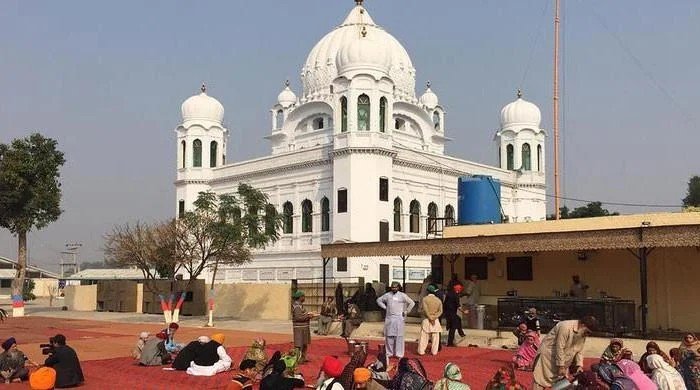
More than a month has passed since India unilaterally closed the Kartarpur Corridor following the cross-border tensions of May 2025, but the route remains inaccessible to Indian Sikh pilgrims despite a ceasefire agreement reached between India and Pakistan. The continued closure has drawn criticism from religious communities, diplomats, and human rights advocates, who see the delay as both unnecessary and politically charged.
Background: A Symbol of Peace
The Kartarpur Corridor, inaugurated in November 2019, was hailed as a historic peace initiative that allowed Sikh pilgrims from India visa-free access to Gurdwara Darbar Sahib in Kartarpur, Pakistan—the final resting place of Guru Nanak Dev Ji, the founder of Sikhism. Stretching 4.7 km across the border from Dera Baba Nanak in India to Kartarpur in Pakistan, the corridor was created to enable thousands of pilgrims to perform their religious rites without bureaucratic or political obstacles.
For the Sikh community in India and the diaspora abroad, Kartarpur is not just a place of worship but a deeply spiritual destination that represents centuries of shared history, culture, and faith.
Closure After “Operation Sindoor”
On May 7, 2025, India suspended operations of the Kartarpur Corridor, citing “security concerns” following its cross-border military action known as “Operation Sindoor.” The operation was conducted in response to what India claimed were terrorist threats originating from Pakistani territory. As a precaution, the Indian government closed the corridor indefinitely pending a “complete security review.”
Pakistan, on the other hand, maintained that it had taken adequate security measures around the Gurdwara complex and border zone and kept its side of the corridor operational. Pakistani authorities have continued to welcome Indian pilgrims who travel via third countries, albeit in limited numbers.
According to officials, more than 200 Indian-origin Sikhs have visited Kartarpur through the Pakistani side since the closure, taking indirect routes via other countries like the UAE and the UK. Many of these pilgrims have expressed disappointment over the extra travel burdens and diplomatic hurdles imposed by the closure.
Ceasefire and Calls for Reopening
A ceasefire agreement was formally reached between India and Pakistan on April 24, 2025, after a month of heightened border tensions. The move raised hopes among religious communities and peace advocates that the Kartarpur Corridor would soon reopen.
Several Sikh organizations, including the Shiromani Gurdwara Parbandhak Committee (SGPC) and the Delhi Sikh Gurdwara Management Committee (DSGMC), submitted petitions to the Indian Ministry of Home Affairs demanding immediate resumption of pilgrim traffic through the corridor.
“The Kartarpur Corridor is not just a corridor of faith—it is a symbol of peace. It should not be the casualty of political or military tensions,” said Harmeet Singh Kalka, president of DSGMC.
Despite the ceasefire, the Indian government has not yet announced a reopening date. A Ministry of External Affairs spokesperson said the decision will be made “after careful evaluation of ground security conditions and cross-border stability.”
Political and Diplomatic Overtones
Analysts believe the delay in reopening the corridor may be influenced by broader geopolitical calculations. The Indian government has faced growing scrutiny over its Pakistan policy and internal security measures, and any move perceived as a concession may carry political risk ahead of upcoming regional elections.
On the Pakistani side, officials have accused India of using religious routes as political leverage. “We have kept our side open out of respect for religious sentiments. India’s continued closure undermines the spirit of people-to-people diplomacy,” said Pakistan’s Foreign Office spokesperson, Mumtaz Zahra Baloch.
In recent weeks, several international human rights groups and diaspora organizations have called upon both governments to de-link religious pilgrimage from political disputes. The World Sikh Organization (WSO), based in Canada, and the United Sikhs NGO, in the US, have launched online campaigns urging for the unconditional reopening of the corridor.
Human Impact
For the Sikh community, especially those living in Punjab, India, the closure of the Kartarpur Corridor has had a deeply personal impact. “Every time I look across the border at Kartarpur from the viewing point in Dera Baba Nanak, I feel sorrow. We are so close, yet cannot cross,” said Amritpal Kaur, a 65-year-old pilgrim from Amritsar.
Local shopkeepers and transport operators in the Dera Baba Nanak area also report a significant loss of income due to the reduced pilgrim footfall.
What Lies Ahead?
Unless diplomatic engagements accelerate and both countries agree on confidence-building measures, the Kartarpur Corridor risks becoming a victim of recurring political tensions—losing the very essence it was designed to preserve.
As things stand, the message from the Sikh community remains clear: faith must not be held hostage to political disputes. Reopening the Kartarpur Corridor is not only a matter of religious freedom but also of respecting cross-border cultural heritage and mutual trust.
Reference: سیز فائر کے باوجود ڈیڑھ ماہ بعد بھی بھارت کی جانب سے کرتارپور راہداری بند

